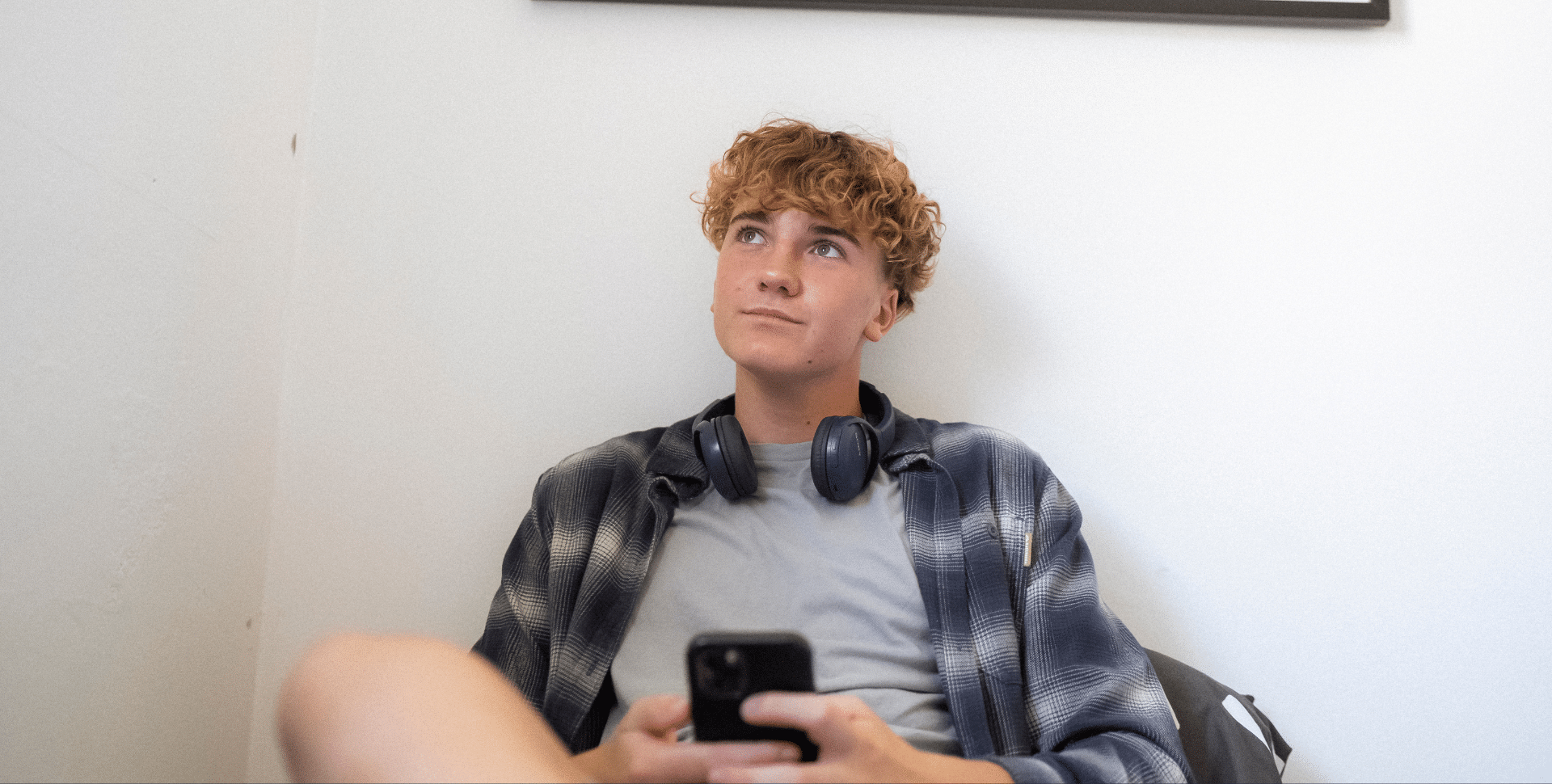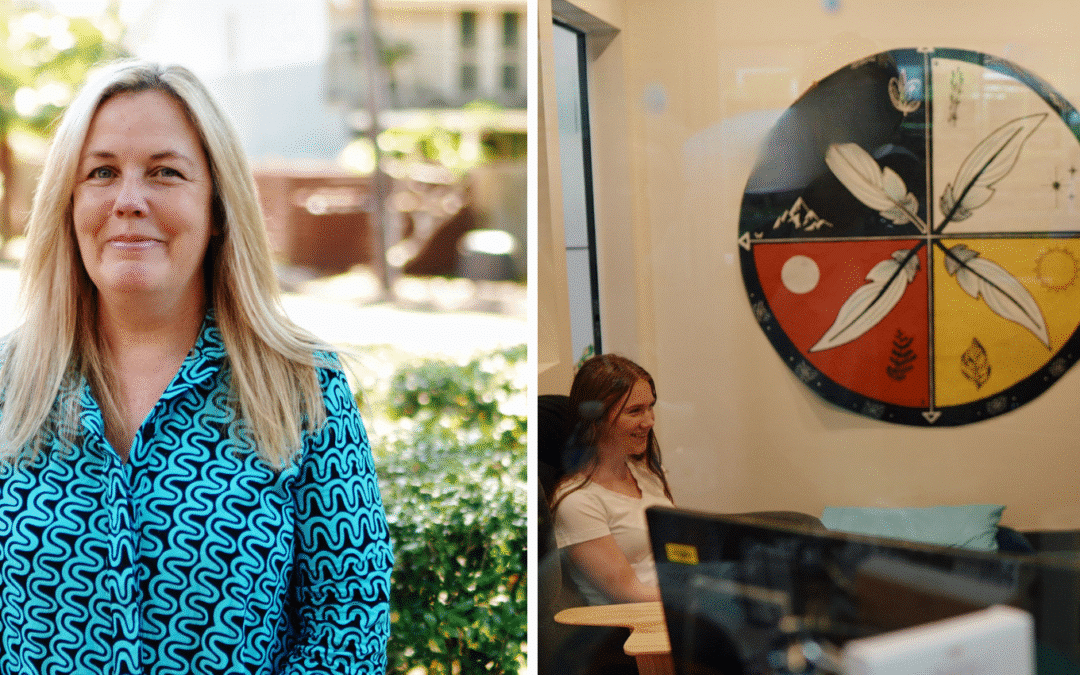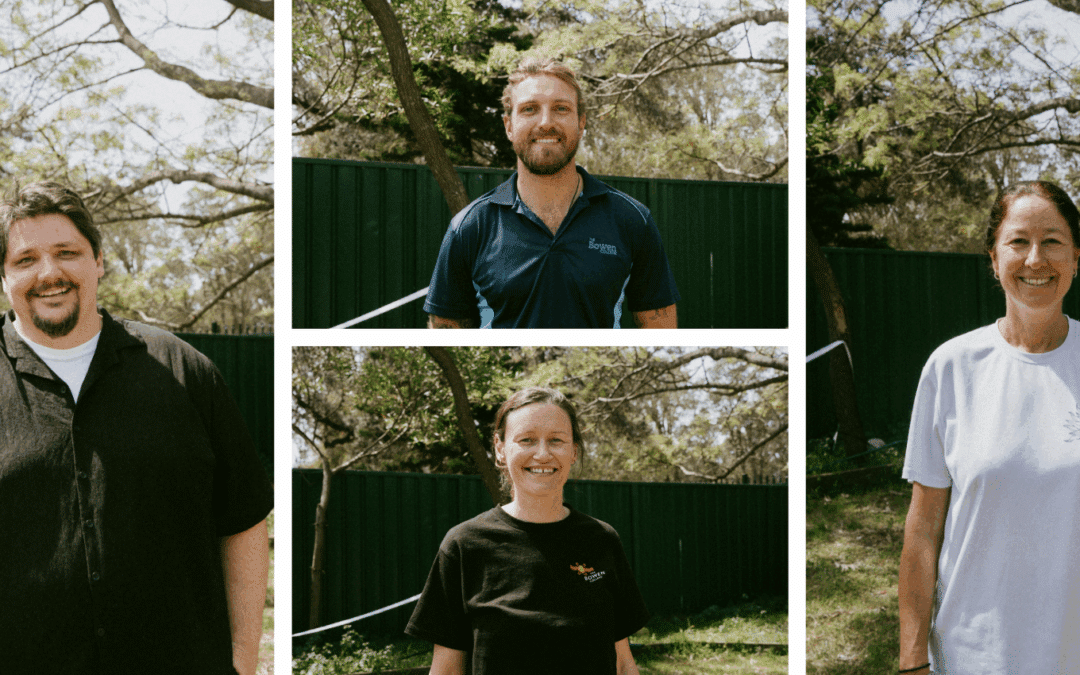At 17, Alex* became homeless after fleeing family violence.
“All I had on me was my phone and charger,” he recalls. “At first, I slept on the couch at a friend’s house.
“When I couldn’t stay any longer, I went to a youth service in the inner city and was helped by the manager at the time. I was able to get temporary accommodation for two nights.”
After settling in for the night, the service manager told Alex he could get whatever he wanted to eat. He got food delivered for dinner and breakfast.
“When I left there two days later, I received calls from other support services as I walked the streets, trying to figure out what to do next,” he says.
The next support service booked a hotel room for him. But that’s when things got even more stressful.
“I turned up, but I wasn’t allowed to stay at the hotel because I didn’t have a guardian,” he explains. “So, I had to stay at a temporary shelter around the corner.
“The shelter felt pretty dodgy, and the place looked like a jail. The people there looked like they were addicts.”
One of the calls Alex received at that time was from the Street Walk Manager at Youth Off The Streets.
“He drives around and delivers food and support to young people in crisis,” Alex says. “I told him about the shelter where I was staying, and he offered to bring me some food.
“I met him out the front, then we walked into the kitchen with the food he got for me. The whole kitchen was full of dishevelled people who looked intimidating. They were adults – a lot older than me.”
Alex says it was intimidating. It didn’t feel like the right place for him to stay.
“They were also taken aback because of my age,” he remembers. “They said things to me like, ‘How old are you?’. One person said, ‘I’ve got your back around here. You don’t want to talk to these people.’
“I thought I was in a movie the whole time. I sat in my room in disbelief, thinking there was no way this was happening. I read reviews about the accommodation and saw bad ones about people breaking into the other rooms and stealing their belongings to buy drugs, which worried me.
He stayed up until 3:00 am, alone in his room, waiting for something to happen.
“Luckily, it didn’t so I went to sleep. I was meant to stay there for up to a week but when I woke up, I rang the support service and said I couldn’t stay there anymore.”
After that, Youth Off The Streets arranged for Alex to stay at a hotel for a week.
“I received support from them pretty much the rest of the time,” he says. “The Street Walk Manager got me some supplies, and another support service sent me some Coles gift vouchers so that I could buy food and other things I needed, like a toothbrush and hairbrush.”
Alex struggled to navigate a complex system on his own.
“There needs to be more safety and housing for young people,” he states. “My options were limited, so there weren’t many places for me to go.
“There was no knowing where I was going to end up. I had no idea what was next. There was no youth housing available to me. I wore the same clothes, day in and day out. I had no money.
At one point, a support worker suggested he go to Centrelink for more options. But the only form of ID he had was an expired store card from 2019. When he tried his luck and told them his situation, he got turned away.
“At first, you’re running around from place to place, meeting different people and doing lots of paperwork to apply for support,” he reflects. “You’re in survival mode. I found that it’s after all the chaos subsides that your mental health really plummets.”
While living at a Youth Off The Streets refuge, Alex couldn’t help feeling despair at times.
“There was always something to feel sad about,” he says. “I felt unmotivated, especially at first. I had to decide whether to continue going to high school, move schools or get a job.
“I stopped going to school because it was too difficult to get there while I was dealing with all these other challenges.
“I was on the waitlist for mental health support, which took months to receive. I eventually opened up to the youth workers at Youth Off The Streets, which helped.
It wasn’t until later, when Alex was performing music at open mic nights and started studying at TAFE, that he felt better.
“While I was living at the refuge, I received casework support and started working on some goals,” he says.
“My caseworker helped me apply for practical things like Centrelink, Medicare and an ID card. I’ve always been grateful that I had somewhere safe to stay, and I could work towards my dreams.”
Eventually, he was eligible for transitional housing, which is where he lives now.
“I’m studying a course on entrepreneurship and new business,” he explains. “I’m learning about how to do your own finances and administration while running a business.
“These are things they don’t teach in school, but I want to be a professional musician, so they are good skills to learn as a sole trader.”
Alex learned that one of the biggest needs for young people experiencing homelessness – and what would have helped him most at that time – is safe and accessible housing for young people in crisis.
“At first, it felt like I had no options. I struggled to find somewhere to stay because I was underage. And there’s a time limit to crisis accommodation, so you’re constantly moving from place to place – all while you’re at rock bottom.”
We’re calling on the federal government to develop a standalone National Child and Youth Homelessness and Housing Plan. Sign this petition to say youth homelessness matters.
*Name and image changed for privacy reasons



